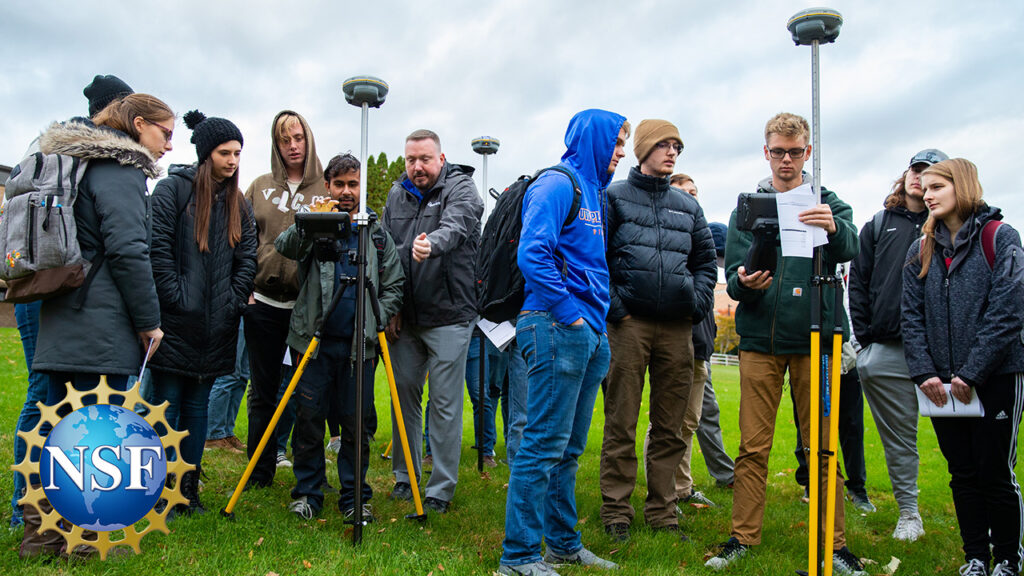The University of Wisconsin-Platteville is the recipient of a $1.5 million grant from the National Science Foundation, which will create a unique scholarship program for civil and environmental engineering students and help bring an increased focus on equity in infrastructure to the field.
The Sociocultural and Place-Aware Civil and Environmental Scholars, or SPACES, program will establish two cohorts of 12 students each, for incoming civil and environmental engineering students entering in fall 2023 and fall 2024. Eligible participants will be from low-income backgrounds and will receive a scholarship of up to $10,000, renewable each year. The program’s focus is on developing engineers who have a holistic community and place-based perspective and influencing the future civil and environmental engineering workforce to produce solutions that appropriately address justice, equity and inclusion.
According to the grant team principal investigators, there is imminent need for improvement of the nation’s infrastructure, which makes now the ideal time to cultivate this mindset for the incoming engineering workforce. The program will also increase the number of engineering professionals from lower income backgrounds in the civil and environmental engineering industry, bringing that critical perspective to the field.
“There is evidence that infrastructure can increase equity or it can cause inequity,” said Dr. Christina Curras, chair of the UW-Platteville Department of Civil and Environmental Engineering. “We want future civil and environmental engineers to be aware of the social needs in a community. Historically, engineers have focused on physical aspects of a location and not people. For example, if you put a road through an area, you are dividing a community that can no longer walk to each other. Or, people don’t want a wastewater plant in their backyard, so where does it end up? Often these decisions disproportionally affect underrepresented and/or poorer populations.”
Scholars will be grouped in a cohort that will be guided by faculty mentors. They will take cohorted seminar and general education courses in which these place-based perspectives will be explored. The students will also participate in short, local field trips, as well as a regional, week-long trip to further develop these concepts.
Principal investigators on the grant include Curras; Dr. Mike Penn, professor of environmental engineering; Dr. Gretchen Bohnhoff, associate professor of environmental engineering; and Dr. Austin Polebitski, associate professor of environmental engineering. Additional faculty involved in the program include Dr. Kristina Fields, professor of civil and environmental engineering; Dr. Claudine Pied, associate professor of sociology; Janelle Hestekin, lecturer of civil and environmental engineering; Dr. Dong Isbister, associate professor of women’s and gender studies; and Dr. Raymond Pugh, assistant professor of chemistry.
This project is supported by the NSF Scholarships in Science, Technology, Engineering, and Mathematics (S-STEM) grant #2221012. Created in 1998, the main goal of the S-STEM program is to enable low-income students with academic ability, talent or potential to pursue successful careers in promising STEM fields.
Written by Alison Parkins
Link to original story: https://www.uwplatt.edu/news/nsf-grants-15-million-new-civil-and-environmental-engineering-scholarship-program

